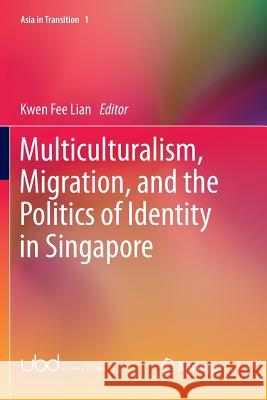Multiculturalism, Migration, and the Politics of Identity in Singapore » książka
topmenu
Multiculturalism, Migration, and the Politics of Identity in Singapore
ISBN-13: 9789811357039 / Angielski / Miękka / 2018 / 158 str.
Kategorie:
Kategorie BISAC:
Wydawca:
Springer
Seria wydawnicza:
Język:
Angielski
ISBN-13:
9789811357039
Rok wydania:
2018
Wydanie:
Softcover Repri
Ilość stron:
158
Waga:
0.24 kg
Wymiary:
23.39 x 15.6 x 0.89
Oprawa:
Miękka
Wolumenów:
01











